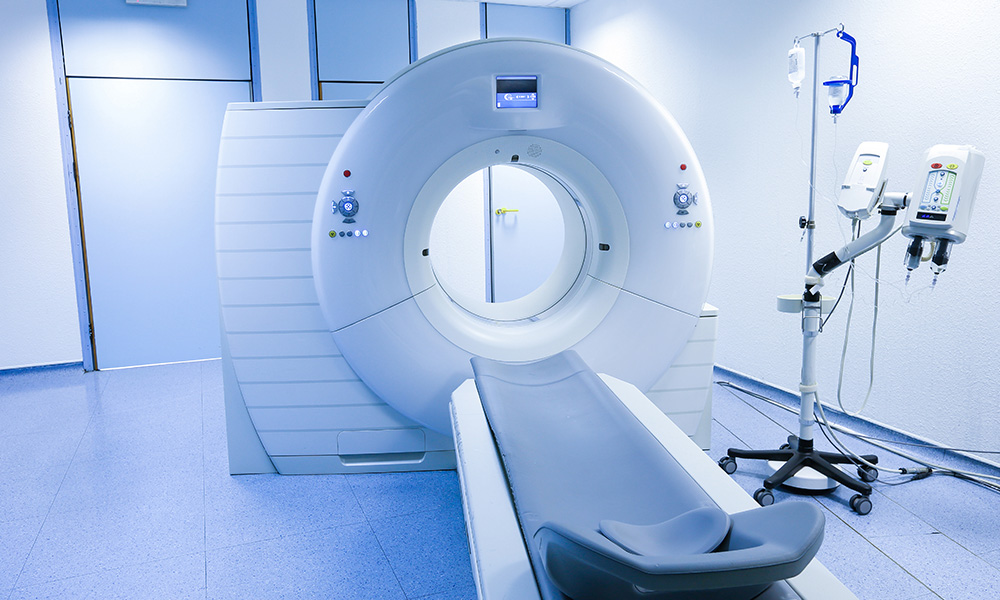Calcium Score
Calcium Score

What is a Calcium Score Test?
Calcium builds up in the form of plaque in the artery walls that supply oxygen-rich blood to the heart muscle. This plaque narrows the inside of the arteries, which can restrict blood flow. The amount of calcium detected on a CT scan relates to the total amount of plaque in the arteries.
Higher calcium scores indicate a greater risk for heart attack and other heart disease events in the future. The test is meant to assess heart disease risk rather than diagnose heart disease itself. The CAT scan is done without any contrast injected into the body, requires no IV, and only a small amount of radiation. The scan itself takes less than 10 minutes.
What is a Calcium Score Test?
Calcium builds up in the form of plaque in the artery walls that supply oxygen-rich blood to the heart muscle. This plaque narrows the inside of the arteries, which can restrict blood flow. The amount of calcium detected on a CT scan relates to the total amount of plaque in the arteries.
Higher calcium scores indicate a greater risk for heart attack and other heart disease events in the future. The test is meant to assess heart disease risk rather than diagnose heart disease itself. The CAT scan is done without any contrast injected into the body, requires no IV, and only a small amount of radiation. The scan itself takes less than 10 minutes.
Am I a Candidate for Calcium Score Testing?
Your cardiologist will carefully evaluate your medical history, risk factors, symptoms (if any), and overall health to determine whether you should get calcium score testing done.
It is important to note that this test is generally not recommended for individuals who have already been diagnosed with heart disease. The following criteria will be considered to help determine if this test is right for you:
- Risk factors for heart disease
If you have risk factors for heart disease, such as high blood pressure, high cholesterol, smoking, obesity, diabetes, or a family history of heart disease, you are a prime candidate for a calcium score test. Even if you do not experience symptoms, this test can detect early signs of plaque buildup in your coronary arteries, providing valuable insights into your heart health. - Guidance on cholesterol medication
If your doctor is considering statin cholesterol medication for you, the results of a calcium score test can be instrumental in the decision-making process. This test helps identify the extent of plaque buildup and contributes to informed recommendations regarding medication.
How To Prepare for a Calcium Score Test
Preparing for a coronary artery calcium scan is relatively straightforward and should not impose significant disruptions to your daily routine. Here are some simple guidelines you can follow in preparation for your calcium score screening:
- No fasting needed
You can eat normally before the test and take medications as prescribed. - Wear comfortable clothes
Dress comfortably in clothes without metal snaps, buttons or zippers that could interfere with imaging. - List medications
Be sure to inform your cardiovascular team about any medical conditions you have and medications or supplements you take. This includes prescriptions, over-the-counter medication, herbs and vitamins. - Arrive early
Plan to arrive 10-15 minutes early to complete any check-in paperwork.
Understanding Calcium Score Test Results
Your calcium score from a coronary artery calcium scan reflects your level of plaque buildup and heart disease risk. Your cardiologist will review your calcium score along with your overall health and medical history to determine personalized steps for heart disease prevention and management.
- 0 - Very Low Risk
A score of 0 means no calcium deposits were found, indicating very low risk and healthy arteries. - 1-10 - Minimal Plaque/Risk
Scores of 1-10 signify minimal calcium and plaque. Risk is still low but adopt heart-healthy lifestyle changes. - 11-100 - Moderate Plaque Likely
Scores of 11-100 indicate a moderate amount of plaque. Risk is increased, warranting preventive steps. - 101-400 - Increased Risk
Scores from 101-400 represent significant plaque buildup and elevated heart disease risk. Aggressive risk reduction is needed. - Over 400 - High Risk
A score over 400 is concerning, reflecting extensive plaque and high risk. Immediate lifestyle changes and treatment are required.
Calcium Score Testing Near Me
Photo Gallery
Video Gallery
Testimonials
Photo Gallery
Get To Know Our Cardiologists

